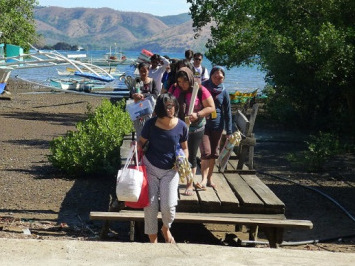Scoping is an important process used in any research endeavor which can save time, money, and effort. What is scoping in research, and how is it being done? This article makes clear this subject and provides an example.
Scoping in Research Defined
Scoping is defined as the act of assessing, finding out, or weighing up situations guided by a previously identified research focus. In examining the practicality of pursuing a subject matter of research, it pays to understand the specific context by which a phenomenon occurs.
To understand this concept better, an example on the use of scoping in research is provided below.
Example of a Scoping Activity
Suppose you would like to research the impact of development programs or projects in communities located across a given region. You will initially have a set of secondary data with you where you may be able to prepare a set of questions to assess the impact of development projects on the different communities.
As you go along with the scoping activity, you will have questions in mind that could not be quickly answered by relying on reports that are available for you to examine. These reports are almost always not that comprehensive and attuned to the specific questions you may raise.
Examples of these questions are the following:
- To what extent were the development programs or projects implemented?
- How did the specific sectors of the community avail of the programs or projects?
- What are the surrounding circumstances upon program or project implementation?
- How do the community members respond to the program or project implemented by an agency?
- What ambient environmental conditions, particularly the social, political, economic, and cultural milieu by which the projects were implemented?
- Are the beneficiaries well aware of the programs or projects?

… plus many more questions that seek to illuminate the key issues and concerns surrounding the program or project. Since this is the initial stage of the assessment, there is a certain degree of vagueness in many respects about programs or projects.
To gain a better grasp of the situation, the common approach to answer questions on key issues and concerns which the secondary information cannot provide is for the researcher to personally undertake a field trip to the study area. The process itself of getting to the target locality can be noted down for future reference and may form part of the scoping process.
Purpose of Scoping in Research
Of what use then is scoping?
Scoping can help the researcher plan what steps need to be done, refine the research objectives, determine the personnel and budgetary requirements, and note down essential areas to be covered, among others. Simply stated, scoping determines the scope, breadth, and depth of the assessment or research. This activity can mean efficient use of time and money with optimal effort.
Materials for Scoping
Materials needed for the scoping activity include (but not exclusive of) the following:
- note pad
- pen/pencil
- camera
- communication equipment (e.g. cellphone)
- geographic positioning system (GPS)
- recorder
If you are involved in a scoping activity, you must arm yourself with a curious mind and a healthy body. Doing things in the field requires you to be critical of things that you see and explore areas or places where you have not been before, which are challenging tasks.
Scoping in research prevents errors that may be costly. As a good researcher, taking time to do scoping identifies potential obstacles that the project team can work around with good planning. It ensures better control to the project implementors on the project’s outcome.
© 2013 March 18 P. A. Regoniel
[cite]


